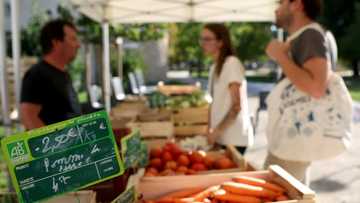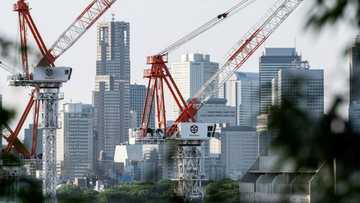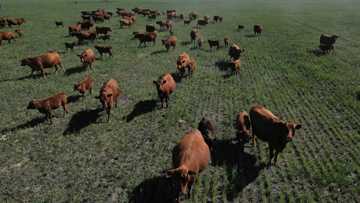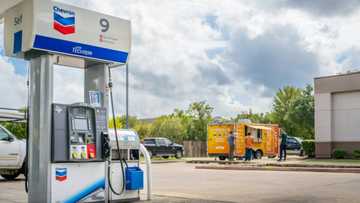“Everybody is Crying": Cooking Gas Price Rises to N1,400 Per Kg, NLNG, Others Give Reasons
- The hike in the price of cooking gas has been attributed to high import tax, global oil prices and the forex crisis in Nigeria
- The issues have forced a surge in the price of cooking gas to about N1,400 per kilogram in some cities
- Consumers are afraid that if the price continues to surge higher, they may need to fall back on alternatives
Legit.ng journalist Victor Enengedi has over a decade's experience covering Energy, MSMEs, Technology and the stock market.
Nigeria Liquefied Natural Gas Limited has attributed the recent increase in cooking gas prices to a combination of factors, including a shortage of vessels, fluctuations in foreign exchange rates, and surging crude oil costs.
The company's clarification coincides with the fact that a kilogram of cooking gas has risen to N1,000 - N1,400, depending on the location, in the open market, causing widespread concern among consumers in anticipation of the Yuletide season.
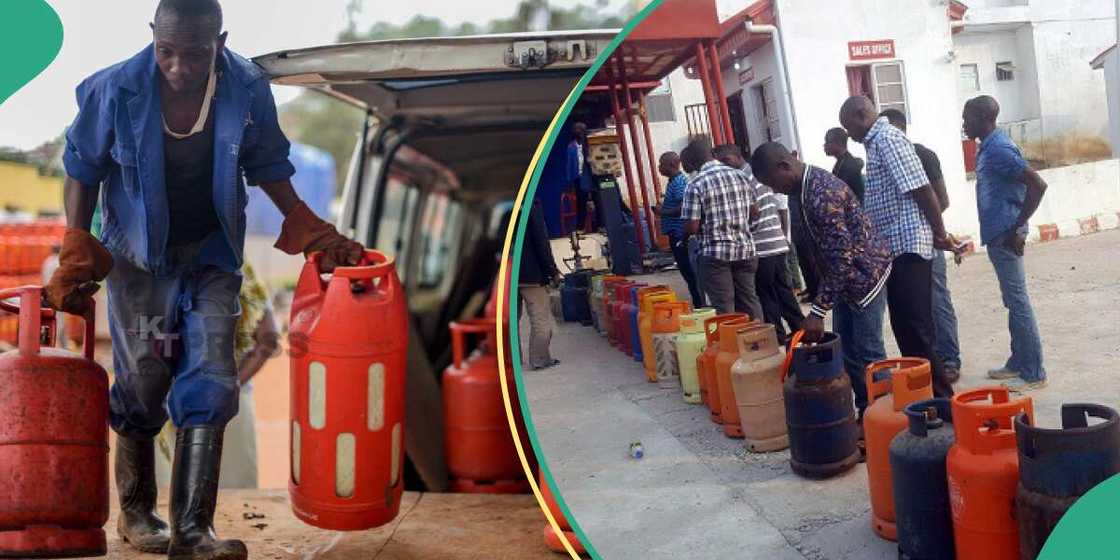
Source: UGC
According to a market survey conducted at the beginning of the month, the price for 20 metric tons of cooking gas at the terminal stood at N10 million. However, by October 20, this price had surged to N14 million for the same quantity.
In an official statement, the NLNG clarified how these elements, combined with domestic economic trends and global influences, have reduced the availability of Liquified Petroleum Gas in the domestic market.
This is as major cities across Nigeria, including Lagos, Katsina, Sokoto, Delta, Kaduna, and Kano, have already started experiencing scarcity of the product.
Exchange rates, rising crude oil prices, others causing hike in gas price
According to Punch, the company stated that the domestic LPG market, similar to any other, is influenced by ever-changing market dynamics and various external factors.
It stated:
Such factors as changes in exchange rates, escalating price benchmarks mirroring crude oil prices, and the Panama Canal drought-induced vessel scarcity impacting transport costs, especially for imported LPG, have had significant effects on energy prices in recent times and could undoubtedly be some of the reasons for recent price hikes witnessed in the domestic market.
Despite the difficulties presented by constraints in feed gas supply, NLNG says it remains committed to playing an active role in LPG deliveries, guaranteeing a steady provision of cooking gas to consumers nationwide.
Additionally, NLNG's General Manager of External Relations and Sustainable Development, Andy Odeh, stated that the price increase is unrelated to NLNG's supplies.
He attributed the price hike to fluctuations in exchange rates and the upward trajectory of price benchmarks closely reflecting the movements in crude oil prices.
Odeh said:
The domestic LPG market, like any other, is subject to dynamic market forces and various external factors.
Such factors as changes in exchange rates, escalating price benchmarks mirroring crude oil prices, and the Panama Canal drought-induced vessel scarcity impacting transport costs, especially for imported LPG, have had significant effects on energy prices in recent times and could undoubtedly be some of the reasons for recent price hikes witnessed in the domestic market.
Olatunbosun Oladapo, who serves as the President of the Nigerian Association of Liquefied Petroleum Gas Marketers (NALPGM), connected the increase in cooking gas prices to a combination of factors, including the surging global prices, elevated tax rates, costly vessels, foreign exchange shortages, and the devaluation of the naira.
Oladapo said:
Everybody is crying. Consumers, intermediaries, and retailers feel the impact because business is now on the low side.
The situation is unfortunate because prices are going higher. Nigerian consumers are going through tough times because they can no longer afford gas.
He emphasised that taxes were exacerbating the situation and called upon the government to intervene to alleviate the hardship the public faced by providing relief measures and reducing taxes and levies.
It would be recalled that marketers cautioned that without government intervention and resolution of the issues, the price of a 12.5kg cooking gas cylinder could go for as high as N18,000 by December.
Nigerians lament increase in cooking gas price
In related news, Legit.ng reported that Nigerians have voiced their discontent over the surge in cooking gas prices, with reports of it exceeding N1,000 per kilogram (Kg).
Some recent buyers of cooking gas shared their dissatisfaction with Legit.ng, expressing unhappiness about the rising prices and the prevailing economic challenges in Nigeria.
This concern arises following earlier warnings from Liquefied Petroleum Gas marketers, who indicated that Nigerians might face higher costs for cooking gas in the coming months.
PAY ATTENTION: Donate to Legit Charity on Patreon. Your support matters!
Source: Legit.ng

